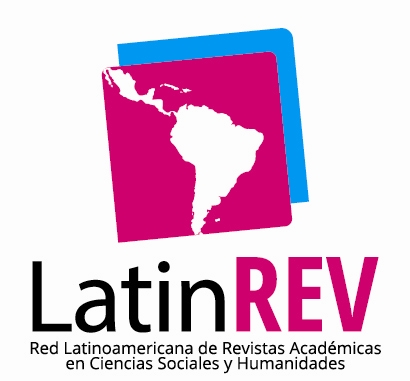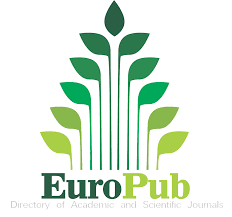Inteligencia Artificial en la educación del siglo XXI: una exploración a su implementación, beneficios, desafíos y consecuencias éticas
DOI:
https://doi.org/10.62325/10.62325/yachana.v14.n1.2025.932Palabras clave:
Inteligencia Artificial, Educación, Ética, Tecnología Educacional, Innovación.Resumen
El presente artículo explora y analiza los beneficios educativos, desafíos profesionales y consecuencias éticas de la implementación de la inteligencia artificial en el contexto educativo actual. Se busca conocer cómo la inteligencia artificial ha ganado espacio como un recurso educativo innovador dentro y fuera del aula, partiendo de la asistencia a docentes y estudiantes, el respaldo a los procesos de aprendizaje y el liderazgo de los actores educativos en el uso de esta tecnología. Por tal razón, esta investigación plantea una metodología cualitativa de análisis documental y diagnóstico de algunos softwares de inteligencia artificial que puedan ayudar y contribuir en el proceso de enseñanza- prendizaje. El análisis de conceptos y teorías relacionadas con la inteligencia artificial, así como programas especializados en este tipo de tecnología aplicados en el contexto educativo, permitieron entender beneficios y desafíos, como ayudar en los procesos de planificación y asistencia a necesidades educativas a los docentes, o apoyar en la resolución de problemas de aprendizajes en los estudiantes. También se determinan algunas de las consecuencias éticas de su uso y aplicación en los procesos de transmisión y construcción de conocimientos, promoviendo el uso adecuado y moderado de esta tecnología sin caer en la dependencia hacia la misma, sobre todo en el mundo actual donde tecnologías como el internet han cambiado la forma de hacer educación, de ahí la importancia de analizar y explorar el uso de la inteligencia artificial en la educación.
Descargas
Citas
Alsharari, N. (2022). The implementation of enterprise resource planning (ERP) in the United Arab Emirates: A case of Musanada Corporation. International Journal of Technology, Innovation and Management (IJTIM), 2(1). https://doi.org/10.54489/ijtim.v2i1.57
Apolo, D., Estrada, A., & Fernández, D. (2024). La inteligencia artificial y su aplicabilidad en la educación escolarizada ecuatoriana. Boletín del Observatorio UNAE, (6). Universidad Nacional de Educación del Ecuador (UNAE). https://tinyurl.com/336w9ub4
Baker, T., & Smith, L., & Anissa, N. (2019). Educ-AI-tion Rebooted? Exploring the future of artificial intelligence in schools and colleges. Nesta. https://tinyurl.com/mps84k9c
Bandura, A. (1986). Social foundations of thought and action: A social cognitive theory. Prentice-Hall.
Bearman, M., Ryan, J., & Ajjawi, R. (2023). Discourses of artificial intelligence in higher education: a critical literature review. Higher Education, 86(2), 369-385. https://doi.org/10.1007/s10734-022-00937-2
Bisquerra, R. (2009). Metodología de la Investigación Educativa. Editorial Muralla.
Bower, M. (2019). Technology-mediated learning theory. British Journal of Educational Technology, 50(3), 1035–1048. https://bera- https://tinyurl.com/mr2bc93e
Burton, J. K., Moore, D. M., & Magliaro, S. G. (2004). Behaviorism and instructional technology. https://tinyurl.com/ycyjvpuj
Chollet, F. (2021). Deep learning with Python (2nd ed.). Manning Publications.
Crompton, H., & Burke, D. (2023). Artificial intelligence in higher education: the state of the field. International Journal of Educational Technology in Higher Education, 20(22), 1-22. https://doi.org/10.1186/s41239-023-00392-8
Cukurova, M., Luckin, R., & Kent, C. (2020). Impact of an artificial intelligence research frame on the perceived credibility of educational research evidence. International Journal of Artificial Intelligence in Education, 30(1), 205–235. https://doi.org/10.1007/s40593-019-00188-w
Farouk, M. (2022). Studying human robot interaction and its characteristics. International Journal of Computations, Information and Manufacturing, 2(1). https://doi.org/10.54489/ijcim.v2i1.73
Gallardo, E. (2017). Metodología de la Investigación. Universidad Continental. https://tinyurl.com/vr68kmfk
García-Peña, V. R., Mora-Marcillo, A. B., & Ávila-Ramírez, J. A. (2020). La inteligencia artificial en la educación. Dominio de las Ciencias, 6(3), 648–666. https://doi.org/10.23857/dc.v6i3.1421
Gil, S. (2023, junio). La ética aplicada al uso de la inteligencia artificial generativa. [Trabajo de grado]. Universidad Pontificia Comillas. http://hdl.handle.net/11531/74275
Gros, B. (1992). La inteligencia artificial y su aplicación en la enseñanza. CL & E: Comunicación, lenguaje y educación, 13, 73-80. https://tinyurl.com/5467py34
Hernández, R; Fernández, C; & Batista, M. (2014). Metodología de la Investigación (6ª ed.). McGraw-Hill, & Interamericana Editores.
Herrera, L., & Muñoz, D. (1992). Inteligencia artificial y lenguaje natural. Lenguas Modernas, 19, 157-166. https://tinyurl.com/5e9ncbdt
Holmes, W., Bialik, M., & Fadel, C. (2019). Artificial intelligence in education: Promises and implications for teaching and learning. Center for Curriculum Redesign. https://tinyurl.com/5x66u3rp
Hwang, G.-J., & Tu, Y.-F. (2021). Roles and research trends of artificial intelligence in mathematics education: A bibliometric mapping analysis and systematic review. Mathematics, 9(6), 584. https://doi.org/10.3390/math9060584
Istenič, A. (2019). Human learning and learning analytics in the age of artificial intelligence. British Journal of Educational Technology. https://doi.org/10.1111/bjet.12879
Jobin, A., Ienca, M., & Vayena, E. (2019). The global landscape of AI ethics guidelines. Nature Machine Intelligence, 1(9), 389-399. https://tinyurl.com/rxekphzd
Kamalov, F., Santandreu, D., & Gurrib, I. (2023). New era of artificial intelligence in education: towards a sustainable multifaceted revolution. Sustainability, 15(16), 12451. https://doi.org/10.3390/su151612451
Koschmann, T. (2009). Paradigm shifts and instructional technology: An introduction. In T. Koschmann (Ed.), CSCL: Theory and practice of an emerging paradigm (Chapter 1). Routledge. https://tinyurl.com/4svtbseu
Law, N. (2019). Human development and augmented intelligence. In S. Isotani et al. (Eds.), Proceedings of the 20th International Conference on Artificial Intelligence in Education (AIED 2019) (Part 1, p. 18). Springer. https://tinyurl.com/3mr8adb5
León, G., & Viña, S. (2017). La inteligencia artificial en la educación superior. Oportunidades y amenazas. INNOVA Research Journal, 2(8.1), 412–422. https://doi.org/10.33890/innova.v2.n8.1.2017.399
Liu, C. H., & Matthews, R. (2005). Vygotsky’s philosophy: Constructivism and its criticisms examined. International Education Journal, 6(3), 386-399. https://files.eric.ed.gov/fulltext/EJ854992.pdf
Martínez, X. (2019). Presentación. La industria 4.0 y las pedagogías digitales: Aporías e implicaciones para la educación superior. Innovación Educativa, 19(79), 7-12. https://tinyurl.com/mr3n9wf
Mero, W. (2022). La innovación educativa como elemento transformador para la enseñanza en la unidad educativa “Augusto Solórzano Hoyos.” Revista EDUCARE-UPEL-IPB-Segunda Nueva Etapa 2.0, 26(2), 310-330. https://doi.org/10.46498/reduipb.v26i2.1775
Obaid, A. J. (2021). Assessment of smart home assistants as an IoT. International Journal of Computer Science and Information Management, 1(1). https://doi.org/10.54489/ijcim.v1i1.34
Ocaña-Fernández, Y., Valenzuela-Fernández, L. A., & Garro-Aburto, L. L. (2019). Inteligencia artificial y sus implicaciones en la educación superior. Propósitos y Representaciones, 7(2), 536-568. https://doi.org/10.20511/pyr2019.v7n2.274
Ouyang, F., & Jiao, P. (2021). Artificial intelligence in education: The three paradigms. Computers and Education: Artificial Intelligence, 2, 100020. https://doi.org/10.1016/j.caeai.2021.100020
Popenici, S., & Kerr, S. (2017). Exploring the impact of artificial intelligence on teaching and learning in higher education. Research and Practice in Technology Enhanced Learning, 12, 22. https://doi.org/10.1186/s41039-017-0062-8
Technavio. (2024). Artificial Intelligence (AI) market analysis North America, Europe, APAC, South America, Middle East and Africa - US, China, UK, Germany, Canada - Size and forecast 2024-2028. https://tinyurl.com/sfbd8ddm
Vera, P., Bonilla, G., Quishpe, A., & Campos, H. (2023). La inteligencia artificial en la educación superior: un enfoque transformador. Revista Polo del Conocimiento, 8(11). https://tinyurl.com/yy9385h3
Vygotsky, L. S. (2009). El desarrollo de los procesos psicológicos superiores (S. Furió, Trad.). Crítica. (Trabajo original publicado en 1978). https://tinyurl.com/2csy232p
Wadhwani, P. (2023). AI in education market size - By component (solution, service), by deployment (on-premise, cloud), by technology (machine learning, deep learning, natural language processing), application, end-use & forecast, 2023-2032 (Report ID: GMI2639). Global Market Insights Inc. https://tinyurl.com/kypyj8u5
Yang, S., Ogata, H., Matsui, T., & Chen, N.-S. (2021). Human-centered artificial intelligence in education: Seeing the invisible through the visible. Computers and Education: Artificial Intelligence, 2, 100008. https://doi.org/10.1016/j.caeai.2021.100008
Zawacki-Richter, O., Marín, V. I., Bond, M., & Gouverneur, F. (2019). Systematic review of research on artificial intelligence applications in higher education – where are the educators? International Journal of Educational Technology in Higher Education, 16(39). https://doi.org/10.1186/s41239-019-0171-0
Publicado
Cómo citar
Número
Sección
Licencia
Derechos de autor 2024 Yachana Revista Científica

Esta obra está bajo una licencia internacional Creative Commons Atribución-NoComercial 4.0.





















